I have a pretty big class that i want to break down in smaller classes that each handle a single part of the whole. So each child takes care of only one aspect of the whole.

Each of these child classes still need to communicate with one another. For example Data Access creates a dictionary that Plotting Controller needs to have access to. And then plotting Controller needs to update stuff on Main GUI Controller. But these children have various more inter-communication functions.
How do I achieve this?
I've read Metaclasses, Cooperative Multiple Inheritence and Wonders of Cooperative Multiple Inheritence, but i cannot figure out how to do this.
The closest I've come is the following code:
class A:
def __init__(self):
self.myself = 'ClassA'
def method_ONE_from_class_A(self, caller):
print(f"I am method ONE from {self.myself} called by {caller}")
self.method_ONE_from_class_B(self.myself)
def method_TWO_from_class_A(self, caller):
print(f"I am method TWO from {self.myself} called by {caller}")
self.method_TWO_from_class_B(self.myself)
class B:
def __init__(self):
self.me = 'ClassB'
def method_ONE_from_class_B(self, caller):
print(f"I am method ONE from {self.me} called by {caller}")
self.method_TWO_from_class_A(self.me)
def method_TWO_from_class_B(self, caller):
print(f"I am method TWO from {self.me} called by {caller}")
class C(A, B):
def __init__(self):
A.__init__(self)
B.__init__(self)
def children_start_talking(self):
self.method_ONE_from_class_A('Big Poppa')
poppa = C()
poppa.children_start_talking()
which results correctly in:
I am method ONE from ClassA called by Big Poppa
I am method ONE from ClassB called by ClassA
I am method TWO from ClassA called by ClassB
I am method TWO from ClassB called by ClassA
But... even though Class B and Class A correctly call the other children's functions, they don't actually find their declaration. Nor do i "see" them when i'm typing the code, which is both frustrating and worrisome that i might be doing something wrong.


Is there a good way to achieve this? Or is it an actually bad idea?
EDIT: Python 3.7 if it makes any difference.